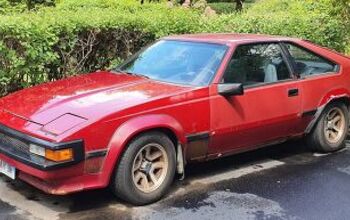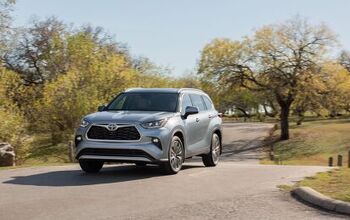Louisiana Supreme Court Allows Vehicle Searches on a Hunch
The Louisiana Supreme Court on Friday gave a green light to police officers looking to search automobiles without a warrant. The court ruled on an interim appeal in the ongoing trial of Derrick R. Kirton, 30, and Crystal N. Strate, 27, who were charged on February 23 with distribution and possession of heroin, respectively. A judge in the Orleans Parish Criminal District Court had ruled that the police search of Kirton’s vehicle was unlawful because it was not based on probable cause. The prosecution appealed.
Louisiana law allows for rulings on individual motions to be appealed without waiting for the end of the trial, and the state succeeded in convincing the high court to overturn the motion to suppress the evidence from the vehicle search. New Orleans Police Detective Roccoforte had seen Strate in parking lot of a fast food store using her cell phone and “looking about anxiously.” Strate drove a short distance to pull up to Kirton’s parked vehicle, remained in it for less than a minute, then returned to her car and drove away. Roccoforte followed and approached Strate after she had parked her car. He noted “furtive movement” of Strate’s right hand and decided to perform a warrantless search of her car. The supreme court found this acceptable.
“We simply observe that based on the totality of facts and circumstances known to Detective Roccoforte and his experience in the field of narcotics investigations, there was at leastobjectively reasonable suspicion of criminal activity when the approach to the car was made,” the court wrote in a footnote. The full decision added: “In determining whether reasonable suspicion exists to conduct an investigatory stop, courts must take into account the totality of the circumstances in a process that allows police to draw upon their own experience and specialized training to make inferences from and deductions about the cumulative information available to them that might elude an untrained person.”
Justice Bernette J. Johnson dissented, arguing the investigatory stop was not based on any reasonable notion that a crime was being committed. She cited a US Department of Justice report that slammed the New Orleans Police Department for its pattern of conducting illegal stops and searches without reasonable suspicion. Johnson’s citation suggested she believed this to be an example of the very conduct DOJ seeks to eliminate.
“The defendant did not present any behavior suspicious of criminal activity to warrant an investigative stop under Terry v. Ohio,” Johnson wrote. “The threshold issue to be determined in the instant case is whether the officer who conducted the investigatory stop had reasonable suspicion of criminal activity… These facts, even in light of the officer’s ten years experience as a narcotics officer, and his claim that the area was known for drug activity, do not provide minimal objective and particularized justification for approaching the defendant in her parked vehicle, and conducting what amounted to an investigatory stop.”
Kirton and Strate’s trial is scheduled to continue on July 14.
A copy of the decision is available in a 200k PDF file at the source link below.
Louisiana v. Kirton (Supreme Court of Louisiana, 6/24/2011)
[Courtesy: Thenewspaper.com]
More by The Newspaper
Latest Car Reviews
Read moreLatest Product Reviews
Read moreRecent Comments
- El scotto UH, more parking and a building that was designed for CAT 5 cable at the new place?
- Ajla Maybe drag radials? 🤔
- FreedMike Apparently this car, which doesn't comply to U.S. regs, is in Nogales, Mexico. What could possibly go wrong with this transaction?
- El scotto Under NAFTA II or the USMCA basically the US and Canada do all the designing, planning, and high tech work and high skilled work. Mexico does all the medium-skilled work.Your favorite vehicle that has an Assembled in Mexico label may actually cross the border several times. High tech stuff is installed in the US, medium tech stuff gets done in Mexico, then the vehicle goes back across the border for more high tech stuff the back to Mexico for some nuts n bolts stuff.All of the vehicle manufacturers pass parts and vehicles between factories and countries. It's thought out, it's planned, it's coordinated and they all do it.Northern Mexico consists of a few big towns controlled by a few families. Those families already have deals with Texan and American companies that can truck their products back and forth over the border. The Chinese are the last to show up at the party. They're getting the worst land, the worst factories, and the worst employees. All the good stuff and people have been taken care of in the above paragraph.Lastly, the Chinese will have to make their parts in Mexico or the US or Canada. If not, they have to pay tariffs. High tariffs. It's all for one and one for all under the USMCA.Now evil El Scotto is thinking of the fusion of Chinese and Mexican cuisine and some darn good beer.
- FreedMike I care SO deeply!

































Comments
Join the conversation
Good for Justice Johnson. This is a perfect example of why all the coourt love in the tax tax thread was more than a little disingenuous.
What tax tax thread are you on about? I looked through the archives at other court related articles and couldn`t see anything. Is it disingenuous to say the courts made a bad decision in one place (example here) and a good decision in another (like the recent Supreme Court case around the sixth amendment - http://www.thetruthaboutcars.com/2011/06/us-supreme-court-confirms-confrontation-right-in-radar-dui-cases/)